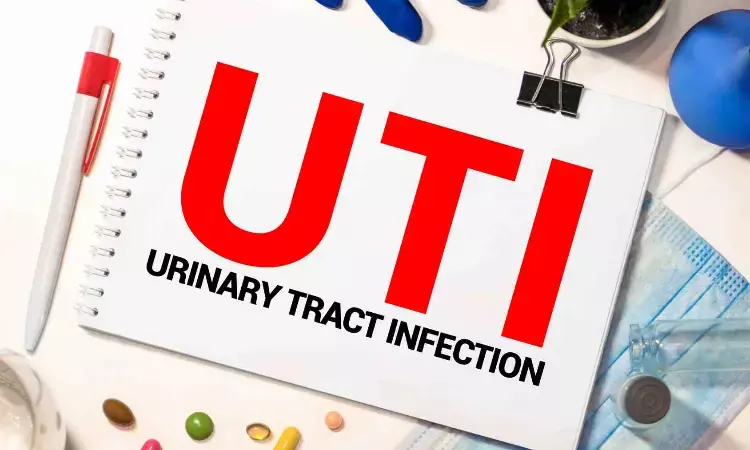- Home
- Medical news & Guidelines
- Anesthesiology
- Cardiology and CTVS
- Critical Care
- Dentistry
- Dermatology
- Diabetes and Endocrinology
- ENT
- Gastroenterology
- Medicine
- Nephrology
- Neurology
- Obstretics-Gynaecology
- Oncology
- Ophthalmology
- Orthopaedics
- Pediatrics-Neonatology
- Psychiatry
- Pulmonology
- Radiology
- Surgery
- Urology
- Laboratory Medicine
- Diet
- Nursing
- Paramedical
- Physiotherapy
- Health news
- Fact Check
- Bone Health Fact Check
- Brain Health Fact Check
- Cancer Related Fact Check
- Child Care Fact Check
- Dental and oral health fact check
- Diabetes and metabolic health fact check
- Diet and Nutrition Fact Check
- Eye and ENT Care Fact Check
- Fitness fact check
- Gut health fact check
- Heart health fact check
- Kidney health fact check
- Medical education fact check
- Men's health fact check
- Respiratory fact check
- Skin and hair care fact check
- Vaccine and Immunization fact check
- Women's health fact check
- AYUSH
- State News
- Andaman and Nicobar Islands
- Andhra Pradesh
- Arunachal Pradesh
- Assam
- Bihar
- Chandigarh
- Chattisgarh
- Dadra and Nagar Haveli
- Daman and Diu
- Delhi
- Goa
- Gujarat
- Haryana
- Himachal Pradesh
- Jammu & Kashmir
- Jharkhand
- Karnataka
- Kerala
- Ladakh
- Lakshadweep
- Madhya Pradesh
- Maharashtra
- Manipur
- Meghalaya
- Mizoram
- Nagaland
- Odisha
- Puducherry
- Punjab
- Rajasthan
- Sikkim
- Tamil Nadu
- Telangana
- Tripura
- Uttar Pradesh
- Uttrakhand
- West Bengal
- Medical Education
- Industry
UTIs Linked to Short-Term Increased Risk of Heart Attack and Stroke, reveals research

A study published in BMJ Open has revealed that urinary tract infections (UTIs) may act as a trigger for myocardial infarction (MI) or stroke, particularly within the first 7 days of infection. This supports growing evidence that acute infections contribute to the development of cardiovascular diseases. The study was conducted by Nicola F. and colleagues.
The research sought to assess whether UTIs are linked with greater short-term risk of adverse cardiovascular events. Through a self-controlled case series design, researchers compared patients who both experienced a confirmed UTI and either a first MI or stroke between January 1, 2010, and December 31, 2020. Participants minimized the risk of confounding by serving as their own controls.
The study employed the linked general practice, hospital admission, and microbiology data on the population of Wales from the Secure Anonymised Information Linkage (SAIL) databank. The participants were only those who were more than 30 years old and had a hospital admission for MI or stroke and microbiologically confirmed UTI in the study period.
The study defined risk periods as 1–7 days, 8–14 days, 15–28 days, and 29–90 days after UTI diagnosis and compared the incidence of MI or stroke occurring during those periods versus baseline periods using Poisson regression to calculate incidence rate ratios (IRRs) with 95% CIs.
Key Findings
• A total of 51,660 inpatients received a diagnosis of MI. Of these, 2320 (4.5%) had 3900 confirmed UTIs.
• 58,150 were admitted for stroke, and 2840 (4.9%) had 4600 proven UTIs.
•There were 120 MIs in risk periods and 2190 in baseline periods, with a significantly elevated risk of MI in the initial 1–7 days following a UTI (IRR 2.49, 95% CI 1.65–3.77).
• There were 200 strokes during risk periods and 2640 during baseline periods, with a heightened risk of stroke in the 1–7 days after UTI (RIDR 2.34, 95% CI 1.61–3.40).
• These findings emphasize that the first week after UTI could be a potentially risky time for cardiovascular complications.
This research presents strong evidence that urinary tract infection can serve as a short-term trigger for heart attack and stroke, with the greatest risk in the initial week following infection. Since UTI is extremely common, awareness of this association could potentially be important for reducing outcome in at-risk individuals. Researchers call for further investigation of mechanisms and possible prevention measures to eliminate cardiovascular complications after UTIs.
Reference:
Reeve, N. F., Best, V., Cannings-John, R., Gillespie, D., Hughes, K., Lugg-Widger, F. V., Torabi, F., Wootton, M., Akbari, A., & Ahmed, H. (2025). Risk of myocardial infarction and stroke following microbiologically confirmed urinary tract infection: a self-controlled case series study using linked electronic health data. BMJ Open, 15(6), e097754. https://doi.org/10.1136/bmjopen-2024-097754
Dr Riya Dave has completed dentistry from Gujarat University in 2022. She is a dentist and accomplished medical and scientific writer known for her commitment to bridging the gap between clinical expertise and accessible healthcare information. She has been actively involved in writing blogs related to health and wellness.
Dr Kamal Kant Kohli-MBBS, DTCD- a chest specialist with more than 30 years of practice and a flair for writing clinical articles, Dr Kamal Kant Kohli joined Medical Dialogues as a Chief Editor of Medical News. Besides writing articles, as an editor, he proofreads and verifies all the medical content published on Medical Dialogues including those coming from journals, studies,medical conferences,guidelines etc. Email: drkohli@medicaldialogues.in. Contact no. 011-43720751


